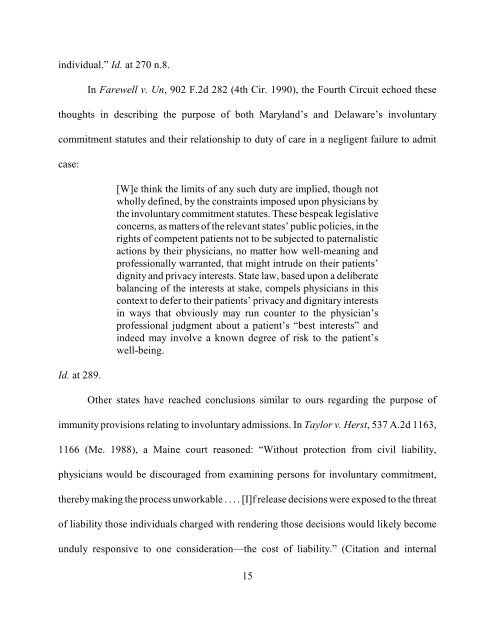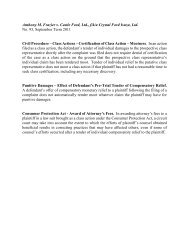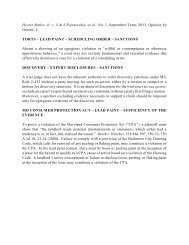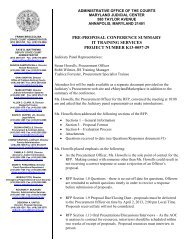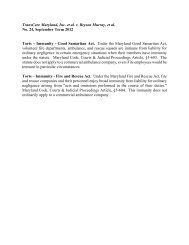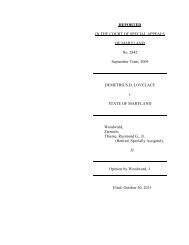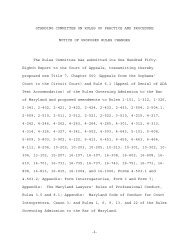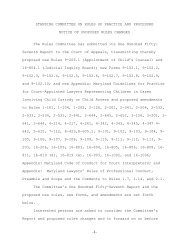0284/12 - Maryland Courts
0284/12 - Maryland Courts
0284/12 - Maryland Courts
You also want an ePaper? Increase the reach of your titles
YUMPU automatically turns print PDFs into web optimized ePapers that Google loves.
individual.” Id. at 270 n.8.<br />
In Farewell v. Un, 902 F.2d 282 (4th Cir. 1990), the Fourth Circuit echoed these<br />
thoughts in describing the purpose of both <strong>Maryland</strong>’s and Delaware’s involuntary<br />
commitment statutes and their relationship to duty of care in a negligent failure to admit<br />
case:<br />
Id. at 289.<br />
[W]e think the limits of any such duty are implied, though not<br />
wholly defined, by the constraints imposed upon physicians by<br />
the involuntary commitment statutes. These bespeak legislative<br />
concerns, as matters of the relevant states’ public policies, in the<br />
rights of competent patients not to be subjected to paternalistic<br />
actions by their physicians, no matter how well-meaning and<br />
professionally warranted, that might intrude on their patients’<br />
dignity and privacy interests. State law, based upon a deliberate<br />
balancing of the interests at stake, compels physicians in this<br />
context to defer to their patients’ privacy and dignitary interests<br />
in ways that obviously may run counter to the physician’s<br />
professional judgment about a patient’s “best interests” and<br />
indeed may involve a known degree of risk to the patient’s<br />
well-being.<br />
Other states have reached conclusions similar to ours regarding the purpose of<br />
immunity provisions relating to involuntary admissions. In Taylor v. Herst, 537 A.2d 1163,<br />
1166 (Me. 1988), a Maine court reasoned: “Without protection from civil liability,<br />
physicians would be discouraged from examining persons for involuntary commitment,<br />
thereby making the process unworkable . . . . [I]f release decisions were exposed to the threat<br />
of liability those individuals charged with rendering those decisions would likely become<br />
unduly responsive to one consideration—the cost of liability.” (Citation and internal<br />
15


